- Home
- Anne Rivers Siddons
Downtown Page 2
Downtown Read online
Page 2
During the last terrible, irreparable argument I had with my brother John he told me that she changed when I was born, but I know that he was only trying to hurt me with that. In his eyes I had brought scalding shame on the family, and he fought me with what weapons he had. I knew that what he said was not true. My mother changed very gradually, and if I had been older I could have seen it happening. She began to change, I think, when my father started with the women and drinking, and she changed for good and all when he did, when the laughing and the kissing and the spontaneous snatching-up and dancing around the kitchen stopped, and that was when he and many other Corkie men were fired from Monarch for trying to unionize.
Before that my father had been a fierce partisan of all things American, loudly scornful of those who clung to the ways of the old sod. It was, by his lights, a good life Monarch had given him and his family; to him, “made in America” was more than a public relations slogan. It was one of the tenets that he lived by.
But Ireland will not, finally, let her sons go, and the dark need to argue and shout and rage in the name of injustice, real or imagined, came crawling out of the core of Liam O’Donnell like a tapeworm. When the first black men—spades and spooks and nigglers always to my father and the men of Corkie, even though they had long bossed black gangs on the docks and laughed and eaten with them—began to aspire to and get minor supervisory posts, better pay, brighter prospects at Monarch, Liam O’Donnell and the Monarch men of his age began to lobby for organization and unionization. Georgia was a right-to-work state, and companies like Monarch were not about to let that change. Anyone not blinded and maddened with prejudice could have seen that it was a lost cause. But despite that—or perhaps, being the man that he was, because of it—my father took his rage to the pubs and street corners, and gathered a sizable army of red-faced, furious, bellowing Irishmen around him before Monarch bothered to fire them. It was a terrible shock to him. I truly don’t think he ever recovered from it.
I was around nine when it happened, in that last somnolent year of the decade, and I remember almost to the day when the man I had known came home from work for the last time and sat down in front of the large new Dumont television set he had bought and turned into someone I no longer knew. This man laughed no longer, made no more insulting, infectious jokes, took us no more for ice cream or to bingo, went only on high holy days to Mass, and carried me never again on his shoulders on a hot, still summer night. He stared silently at the flickering black and white screen in the living room while the life of the house stumbled awkwardly around him, waiting only for five o’clock, when he could escape to Perkins’s Pub on the wharf, under the great shadow of the river bluff, where he and his mates had always stopped off after work three or four times a week. Now they met there and drank, steadily, watching the shifts change and the crowds, increasingly dotted with black faces, surge back and forth across the docks like the tide, while they muttered together in their spleen and sadness. And what they talked of in those twilights now was Ireland.
It was during those days, when he would come stumbling home, often on the arms of his cronies or one of my brothers, sent to fetch him, that I began to hear the old stories of Ireland. Stories of soldiers and poets and kings and virtuous maidens, stories of heroes and battles and glory and blood. Stories and songs that we had not known he knew. Perhaps he had not known, either. In those days, and the days that followed, my laughing, devilish, handsome father became one of those ludicrous and heartbreaking professional Irishmen who could be found drinking and weeping in pubs up and down the East Coast from Boston to Savannah; a straggling, frayed rosary of beads that had yearned to be gold but could not, in the end, transmute themselves. Ireland, they intoned endlessly, Ireland. If it was not Irish, it was not worth the gunpowder to blow it to hell.
It was then that he began to call me Smoky. Before that he had called me, as everyone else did, Reenie, after my mother, or, if he was angry with me, the more formal Maureen. I had almost forgotten that I had a Gaelic middle name; the old grandmother who had insisted on it, my father’s nonna, had died when I was not yet two. It is spelled Aisling, and it means, literally, “beautiful dream.” I remember being told that back during the Troubles, when their English oppressors had forbidden that poetry about Ireland be written, Irish poets used the word aisling in place of Ireland. My father remembered it suddenly one evening when John and James had brought him home much the worse for wear, and seized upon it as if it had been the pot of gold at the end of the rainbow.
“Beautiful dream,” he crooned, over and over, his voice thick with Jameson and tears. “Beautiful dream. Ah, and ’tis Aisling you are from now on, darlin’, and I’ll not be hearing anything else under this roof.”
He often sounded like Barry Fitzgerald after a session at Perkins’s.
When pronounced, the name sounds like “ashling,” and it was only a matter of time until one of my brothers, tormenting me, stumbled upon “ashy,” and then Smoky. I hated it, and ran sniffling to my father, sure that he would reestablish by fiat the slightly less objectionable Aisling. But something in the cheeky, common little nickname pleased him, or else his perversity demon was sitting on his shoulder that day, because he laughed uproariously, and repeated it several times, and the boys all laughed, and even my mother smiled, and Smoky I have stayed until this day. As I grew older I tried, without success, to reintroduce Aisling or Maureen or Reenie among my schoolmates, but without success. Something in the combination of syllables, some essential foolishness, obviously had great charm. It is a nickname without dignity or substance; a man I once loved told me that it sounds like a stripper’s name or a professional lady roller skater’s—Smoky O’Donnell, queen of the steel wheels. It might as well be graven on my forehead. If I should ever win a Pulitzer Prize, it will be presented, not to Maureen Aisling, but to Smoky O’Donnell. It has outlived by far its perpetrator, and bids fair to outlive its owner. It is not the least of the reasons, that first night in Atlanta with my father, that “Liam O’Donnell’s daughter” struck me to stone.
We crawled with the Saturday night traffic out Peachtree Street, past the great department stores, lit for Christmas, past the towering new hotels that were springing up like white mushrooms—one, I had heard, had a cocktail lounge on its roof that revolved, presenting a spangled panorama of the entire city—past office buildings and restaurants and movie theaters and shops. There were people everywhere, heads lowered against the mist, hurrying across the streets and down the side-walks. Many carried Christmas packages and shopping bags from stores that were names out of legend to me: Rich’s, Davison-Paxon, J.P. Allen, Muse’s. There were many couples, heading into the movie theaters and restaurants, and who knew where else. Most walked quickly, some arm in arm, and it seemed to me that all of them were smiling. It was a world made of light; light was everywhere. Streetlights wore opalescent collars, neon signs streamed and flared, automobile lights blazed and flickered, tires left iridescent snail’s tracks on the shining black streets. Even closed away in the Vista Cruiser’s overheated interior, I could hear the music of the city: horns blaring, tires swishing wetly, brakes squealing, sirens, snatches of laughter and shouts at intersections, from somewhere the heavy beat, though not the melody, of rock music. Saturday night in downtown Atlanta.
I swiveled my head from side to side, heart beating high in my throat, trying to slow my breathing so that my father would not think me inflamed by this Sodom, this Gomorrah. I was close to weeping with an excitement that was the nearest thing I could imagine to the holy rapture Sister Dinitia once described to us. We had been force-fed Latin by Sister Mary Gregory, in whom the world had lost a great Classics scholar when she cast her lot with the cloister, and I said silently, with Cicero long before me, “The city, the city—residence elsewhere is mere eclipse.”
We slid out of the canyon of tall buildings and fetched up abruptly in stalled traffic in a part of town that was light-years, eons away from the romantic, MGM cityscape we
had just passed through. On either side of Peachtree Street now were modest, two- and three-story buildings housing anonymous, largely unlit businesses and services, overhung with a bleak litter of electric wires and signs and frayed awnings and the crossbars of utility poles. But it would not have mattered if it had been Park Avenue, Worth Avenue, the Rue de la Paix. The show was not the street, but the people on the street. Shoals of them, a great river of them, packed so tightly that they seemed to move all of a piece, like the tide, eddying slowly along the sidewalks on Peachtree Street, seemingly oblivious to the nearly stopped carfuls of people who were gawking out windows at them.
“Hippies!” My father spat. “Will you just look at them dirty hippies, now! Dear Jesus, there must be five thousand of them!”
He was right, or nearly; there were not, of course, five thousand of them, but there were a lot, and hippies they were, and more: I saw bikers and out-and-out addicts, so stoned on what they were smoking or had just swallowed or shot up that they were clearly not in the same universe with the rest of us; ragged and eerie children whose bizarre costumes owed more to economic circumstance than the current flower-child craze; supine bodies that might be stoned or ill or even dead; young girls who, even to my untutored eyes, could only be prostitutes; plumed and preening black youths who could only be pimps. Smoke lay in solid strata in the air above the sidewalks; even inside the car, its acrid bite advertised its backyard origins. Music keened and thumped from guitars and radios; ragged and belled cuffs and vests and beads and bare feet and a sea of thin, faded denim challenged the raw fog of the night. Everyone moved slowly and hypnotically, as if underwater; no one seemed at all bellicose or threatening—indeed, most merely looked wackily exalted—and virtually everyone was young. There was nothing at all in the entire lot to threaten, except the sheer numbers of them and perhaps their studied grotesquerie. But I saw many windows in the cars around us fly hastily up, and my father quickly locked the Vista Cruiser’s doors.
“It’s straight home we’re going, and I want no sass from you,” he said tightly.
“Pa—”
“No! I’ll not leave you here by yourself where dirty hippies and God knows what else are shootin’ dope in their veins on the street, and fornicatin’ in the gutters! No decent Catholic girl should have to see that; no daughter of mine will have to go through that mess of whores and whoremongers to get to her work.”
I was silent. We were at the heart of it now, the thing inside Liam O’Donnell that had killed my love for him; the thing that had driven me, ultimately, away from home. It was not the potheads and freaks and the affluent white teenagers playing at being hippies; it was the sex implicit among them. It was sheer bad luck that we should blunder into the fabled Tight Squeeze area of Atlanta that even we in hermetically sealed Corkie had heard of, but I was not surprised. If it had not been Tight Squeeze it would have been something else, anything. I turned my head away from him, feeling the old bile of anger and resentment rise up into my throat, wondering if I had the courage simply to snatch my suitcase out of the car and shut the door and walk away from it, and find my way to the Church’s Home on foot.
Remembering…
From the time we reached puberty, even before, we were taught by our mothers and the nuns and the Church in general that chastity was the only normal, desirable, permissible, or possible state for an unmarried girl, and that even thinking about “doing it” would result in instant corruption, begin the long slide into ruin. To actually do it meant pregnancy, disgrace, death, everlasting hell. No ifs, ands, or buts. I don’t know precisely what the boys were taught, but it must have been something similar, only with the added threats of defiling the temples that were their bodies and bringing shame and anguish to their mothers’ hearts. The natural consequence was that we thought about it all the time—the Black Act, the Dirty Deed—and not a few of us did it. We wept, afterward; we burned inwardly with shame and fear; we suffered agonies of guilt, but we did it.
I never did, but I was a late bloomer, and had not yet begun to date in earnest by the time I was sixteen. But my best friend, Meg Conlon, had. She had gone steady with Frank Callahan since they were thirteen, and by the time she was sixteen, desperate with love and hormones, they did it in the back of Frank’s father’s car after a Demolay dance, and then they did it again, and yet again, and the February before she turned seventeen Meg got pregnant. I never did hear how she figured that happened; I knew that Frank was using the rubbers that his older brother got for him at Malone’s Drugstore. Perhaps the nuns were right; birth control of any kind was a sin, and the sinner would inevitably pay.
I didn’t know about Meg’s pregnancy. I don’t think anyone else did, either, perhaps not even Frank. Meg attempted to abort herself one night with a coat hanger, and ended up in Sisters of Mercy with a raging infection that brought her near to death for many days, and ended, we heard, any chance of her ever having children. I wanted to go to her but my father forbade me, and when she was well enough to come home she went, instead, to her mother’s mother in Jacksonville, ostensibly to care for that terrible old harridan in her long last illness. She never came back. Frank left Corkie the day after his high school graduation, and we never saw him again, either. My father forbade me to talk about either of them.
“She was no better than a whore,” he said when he found me in tears for Meg, soon after we heard. “And what happened to her is no more than should have happened.”
I looked at him incredulously. If I had not been so shocked and outraged, I might have seen the living fear that looked out of his white-lashed blue eyes. But I did not. I saw only that his face was red with rage, tight and twisted and terrible.
“Why is she a whore when she does it,” I screamed at him, “but when you do it with half of Corkie you’re not—”
He slapped me. Before he did that, I still loved my father after a fashion, as best I could. After that, I did not.
His words and the slap had finished the work that the Church had begun, though. After that I became a classic good girl, a model of Catholic young womanhood, the flower of my family. I was a true child of Saint John the Baptist and Corkie. I dated, decorously, many good Catholic boys, but never more than one at a time and never seriously. When things began to get serious, I fled. I still do not know if it was fear or anger that kept me, as the Church puts it, pure.
I had little time at Armstrong College for serious relationships; I studied endlessly to keep my Demolay scholarship and worked in the college bookstore after classes to help pay expenses. There was one young man, a dark, silent, awesomely gifted young Pole from Pittsburgh named Joe Menkiewicz, the editor of the school paper, for which I wrote a column and served as feature editor, with whom I might have thrown caution and Corkie to the winds, but he transferred to Columbia journalism school before the relationship could catch fire, and no one like him happened to me again. I found and nurtured as best I could a talent for writing and editing, and graduated with honors and as editor of the Armstrong Argonaut, and went to work in the office of a large marine insurance company on Bay Street, on the bluff above the docks where my father had worked for so long. I lived at home, paying room and board to my mother and father, and advanced quickly at work, and dated steadily, all good young Catholics from the old neighborhood, trainees in insurance offices like mine, banks, real estate firms, or perhaps the sons of prosperous local Irish merchants. A few of them were truly interested in me and wanted for me just what my family wanted: marriage, children, a life of service in the Church, a neat house on a neat square in the old city a little—but not too much—more affluent than the ones we grew up in, a prosperous middle age, an old age full of years and respectful grandchildren, an honorable death, and a huge funeral at Saint John.
I wanted none of that, but I did not know what I did want. Like Scarlett O’Hara I would, I decided, figure all that out tomorrow. I bent myself to my work. Before I even raised my head I was twenty-six years old and a rising star in my company
and more than half-seriously involved with a handsome young claims adjuster there who was on what would one day be known as the fast track and who was still a virgin.
And I still did not know what I really wanted.
And then one day I did. It was the night Hank Cantwell, my best friend from Armstrong days, the art director of the Argonaut and the college yearbook, called me from Atlanta and said, “You remember those photo-essays we did on the ’Naut about the old town? The cityscape things that I shot and you did the captions for? Well, I showed them to somebody, and he wants to talk to you.”
And a voice like rich honey, like poured wine, deep and complex, came on the line and said, “Hello, dear heart. My name is Matt Comfort, and I’m the editor of Downtown magazine, and I want you to come up here and work for me.”
I said nothing for a moment, while the rest of my life roared in my ears. I knew in that instant that I would go. I knew before I knew who this man was, or even what manner of magazine his might be, that I would go, that I would go if I had to walk every step of the way to Atlanta, and that nothing forever after would be the same. All that was in the extraordinary voice, and more.
Before I could speak, Matt Comfort said, “Hank has told me about your daddy. Is he around? If he is, put him on.”

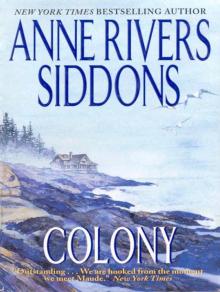 Colony
Colony Nora, Nora
Nora, Nora House Next Door
House Next Door Homeplace
Homeplace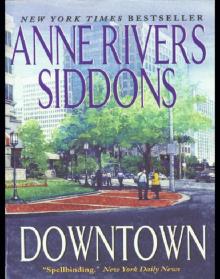 Downtown
Downtown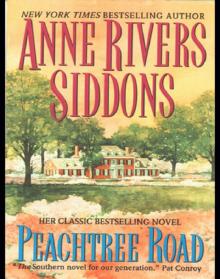 Peachtree Road
Peachtree Road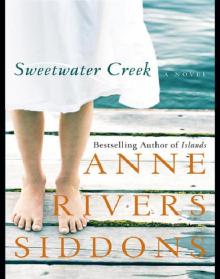 Sweetwater Creek
Sweetwater Creek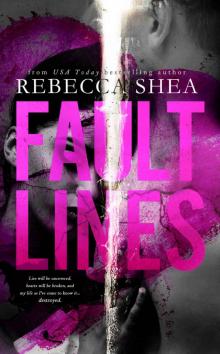 Fault Lines
Fault Lines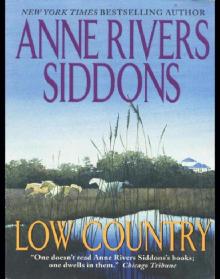 Low Country
Low Country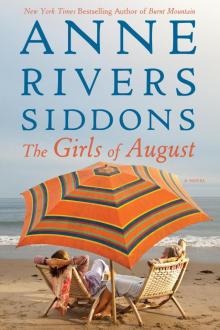 The Girls of August
The Girls of August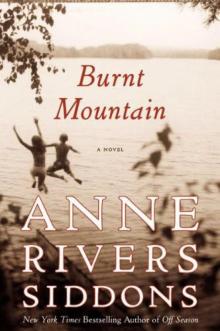 Burnt Mountain
Burnt Mountain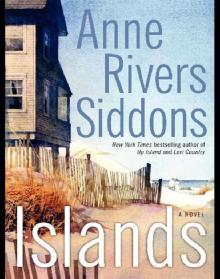 Islands
Islands